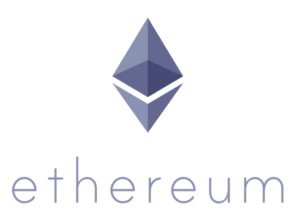$ETH $BTC #CryptoNews #Web3 #Decentralization #Privacy #Encryption #EURegulations #DigitalRights #Blockchain #TechTrends #UserTrust
Will the EU’s Chat Control Law Drive Users to Web3 Alternatives? Find Out Why Experts Think So!
In recent developments surrounding eu’s news, privacy experts have raised significant concerns regarding the European Union’s Chat Control law. This proposed legislation aims to enhance the monitoring of online communications to combat illegal activities. However, experts warn that it could have profound implications for user privacy and trust in digital platforms.
The Chat Control law, as envisioned by EU regulators, seeks to implement broad surveillance measures that would require messaging apps to scan users’ private conversations. This approach raises serious questions about the potential to break encryption, a cornerstone of secure digital communication. When encryption is compromised, it not only endangers individual privacy but also diminishes overall trust in digital platforms, leading users to explore alternatives.
The Shift Towards Decentralized Solutions
As trust in traditional digital platforms wanes, an increasing number of users may gravitate toward decentralized Web3 solutions. These platforms prioritize user privacy and control, allowing individuals to communicate without the oversight of centralized authorities. Experts believe that this shift could fundamentally alter the landscape of digital communication, pushing users towards platforms built on blockchain technology.
In addition to offering enhanced privacy features, Web3 alternatives often incorporate decentralized governance models. This empowers users by giving them a voice in the platforms they utilize. As the EU’s Chat Control law looms, users may find decentralized options more appealing, further accelerating the transition away from centralized services.
Implications for the Future of Digital Communication
The ramifications of the Chat Control law extend beyond user privacy. As users become more aware of the potential erosion of their digital rights, there is a growing demand for transparency from tech companies. Organizations that prioritize user data protection will likely gain a competitive edge in this evolving market.
Moreover, as the EU continues to explore regulatory frameworks for the digital landscape, other regions may follow suit. This could lead to a global reevaluation of how digital platforms operate, fundamentally reshaping the relationship between users and technology.
The Case for Blockchain in Communication
Blockchain technology, the backbone of many Web3 solutions, offers unique advantages that can address the challenges posed by the Chat Control law. By leveraging decentralized networks, users can communicate securely without the fear of surveillance or data breaches. The transparency inherent in blockchain can also foster trust among users, making it a compelling alternative to traditional communication platforms.
For those interested in exploring the growing world of crypto and decentralized finance, numerous resources are available. You can start by visiting our crypto section for insights into the latest developments and trends in the market.
As the conversation around privacy and digital rights continues, the EU’s Chat Control law serves as a critical flashpoint. Users are increasingly aware of their rights and the importance of protecting their personal information. For those looking to safeguard their privacy while still enjoying robust communication options, exploring Web3 alternatives may become not just an option, but a necessity.
For further exploration into the ever-changing landscape of digital communication and privacy, check out this link for additional insights and resources.
In conclusion, the EU’s Chat Control law could inadvertently catalyze a migration towards decentralized solutions. As users seek to regain control over their digital communications, the rise of Web3 alternatives may redefine the future of online interaction. The stakes are high, and the path forward remains uncertain, but one thing is clear: the demand for privacy-centric solutions is only likely to grow.











Comments are closed.